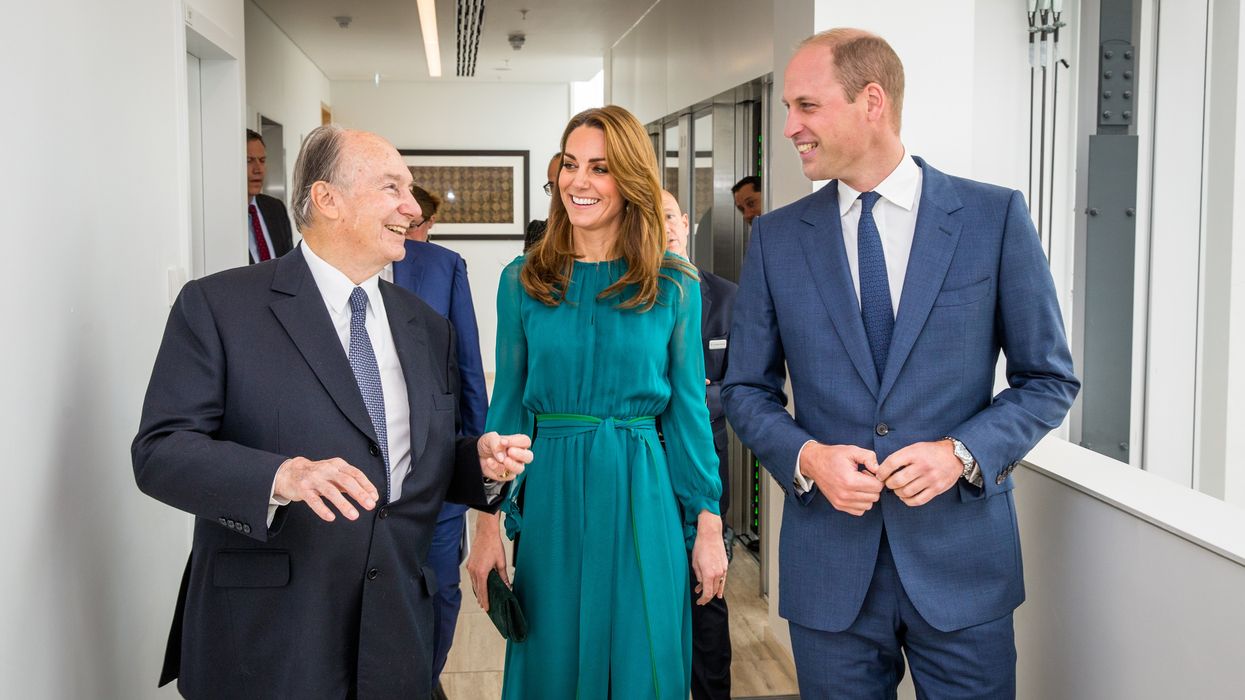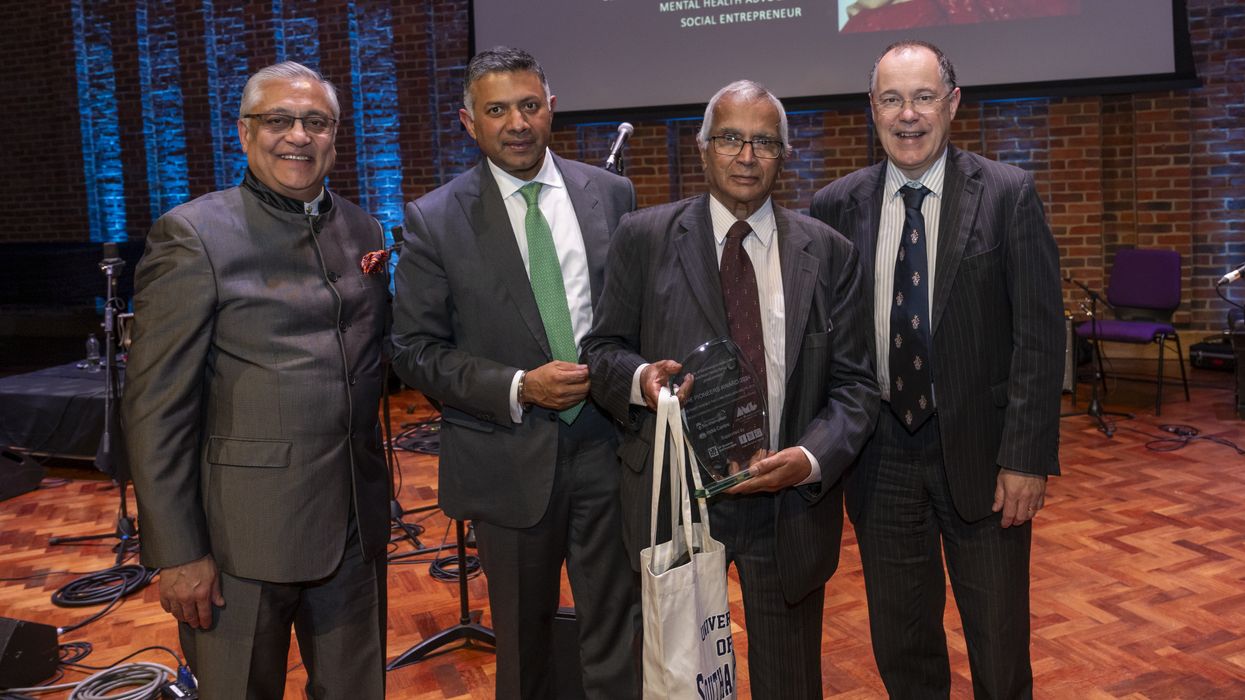A British exit from the European Union would amount to a “serious and wilful self-inflicted wound” which may take decades to heal, the president of Vitabiotics has warned.
Dr Kartar Lalvani is one of 81 Asian business leaders who have signed an open letter supporting the UK’s membership of the EU.
They own a range of businesses from small firms to multi-million pound companies and operate globally in sectors including financial and legal services, real estate, retail, media and technology, pharmaceuticals, construction and manufacturing.
Those joining the rallying cry to support Britain remaining in the 28-member bloc on June 23 include Dr Rami Ranger, founder of Sun Mark Ltd; Amit Bhatia, chairman of Hope Construction Materials; and Thembalath
Ramachandran, chair and managing director of Bristol Laboratories Ltd.
The group has claimed that a vote to leave would create significant uncertainty and put jobs and business investment at risk.
Lalvani owns the country’s leading supplier of vitamins and supplements, which he set up in 1971. The company recently expanded into overseas markets including Iran, Egypt and the US.
He told Eastern Eye that Britain’s exit from the EU would be “very unwise and is likely to be disastrous,” both in the short and long term.
“It would adversely affect the country’s economy, employment opportunities with a decline in exports and the value of sterling and to some extent, even Britain’s security.
“Britain may also lose altogether the opportunity of further developing its important positionand senior political status it currently enjoys in Europe.”
“In short, opting for exile via Brexit would amount to nothing short of a serious and willful self-inflicted wound, which may take years or even decades to heal,” Lalvani added.
The open letter was spearheaded by the prime minister’s infrastructure envoy to India, Alok Sharma, who is coordinating the cross-party British Indians for IN campaign.
Sharma said Brexit would have the double whammy effect of not only hitting UK businesses but also impacting on inward investment into Britain.
“Indian companies have informed me that decisions on future investments into the UK have been deferred until the outcome of the referendum is known. If we vote to leave the EU, there is a big risk that Indian companies will think twice before investing in the UK,” he added.
Over the past few weeks, a number of organisations have announced that Brexit would impose enormous costs on the British economy.
The UK Treasury, the Organisation for Economic Cooperation and Development (OECD) and the International Monetary Fund (IMF) say it is a “fact” that Britain will be permanently poorer because it will trade less with the EU.
In contrast, the leave camp has focused on the impact of immigration to the UK. A new report from MigrationWatch claims that up to half a million refugees and their relatives could move to Britain after 2020 because of EU rules on the free movement of people.
Lord Karan Bilimoria, the founder of Cobra beer, said he was openly sceptical about the EU and added that the Euro had been a disaster from the start.
However, he believes that it is largely because of the EU that Britain is the fifth largest economy in the world.
“The EU has been very good for business, and it still gives the UK opportunities to grow. Britain is the number two destination for attracting foreign direct investment (FDI) in the world and the EU is vital for FDI.
“The EU is vital for inward investment, with our most important allies, the US and India, seeing the UK as a gateway to Europe. About 60 per cent of non-EU companies operating in the EU have their headquarters in the UK, creating jobs and wealth for the whole of the UK.”
Bilimoria added that access to talent and research funding from the EU were other important factors to consider when deciding how to vote in three weeks’ time.
Ranjit Boparan, the owner and CEO of the 2 Sisters Food Group, which is one of the largest food companies in the UK, told a trade magazine that pulling out of the EU could spell disaster for the industry.
The company employs 23,000 workers at 45 sites in the UK, Republic of Ireland, Netherlands and Poland, supplying a third of all poultry consumed in the UK.
He wrote: “A vote to leave the EU has the potential to decimate the British food industry. It’s already a tough environment – highly labour intensive, high volume, producing very low cost products for low margins, and operating in a deflationary market.
The additional challenges Brexit could create for my industry will put many businesses at risk and I don’t think that’s a risk worth taking.”
The majority of British Indians are expected to vote against leaving, according to the British Election Survey (BES). In total, 51.7 per cent of voters are set to vote to remain in the EU compared to 27.7 per cent who are inclined towards Brexit.
However, the research also suggested that a significant portion of the community were still unsure about which way to vote. Almost 17 per cent of respondents said that they “don’t know”, with experts saying that their decision could shift the outcome
of the referendum.
Joining the call to stay in a reformed union is Ketan Mehta, managing director of pharmaceutical business NSL Group.
He said: “Remaining in the EU will not only allow businesses who have already established connections with European countries to continue trade and to grow, thereby contributing to the UK economy, but it will also facilitate and encourage trade for new businesses. We have already invested time and money in building a community that works well together.
“Leaving the EU will affect our currency exchange rate, will stifle growth and will adversely affect thousands of businesses.”
Others argued that access to a market of 500 million customers in the EU “was extremely important for development of business”. The letter, which urged the British public to follow their lead, stated: “Some of those who want Britain to leave the EU suggest that doing so will somehow help to increase our trade with high growth economies like that of India.
“We disagree with this assessment. Britain is a stronger economic partner with countries like India because we are part of the European Union.
“In our experience, one of the key reasons that Britain is an attractive destination for inward overseas investment is because we are seen as a gateway to the European single market of 500 million people.”



















